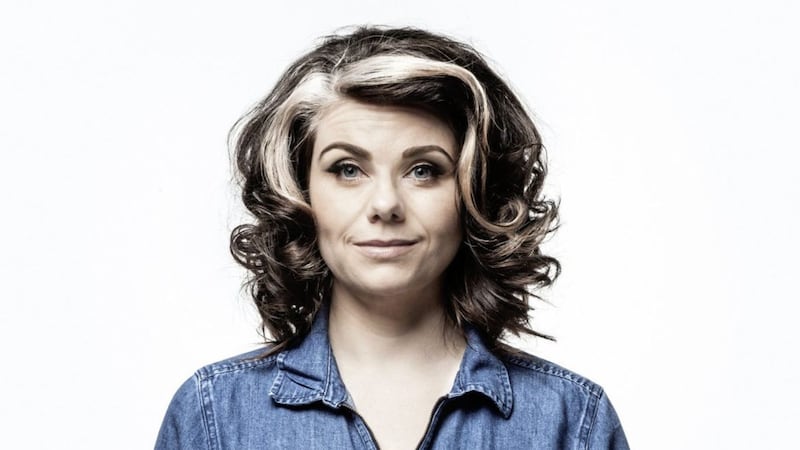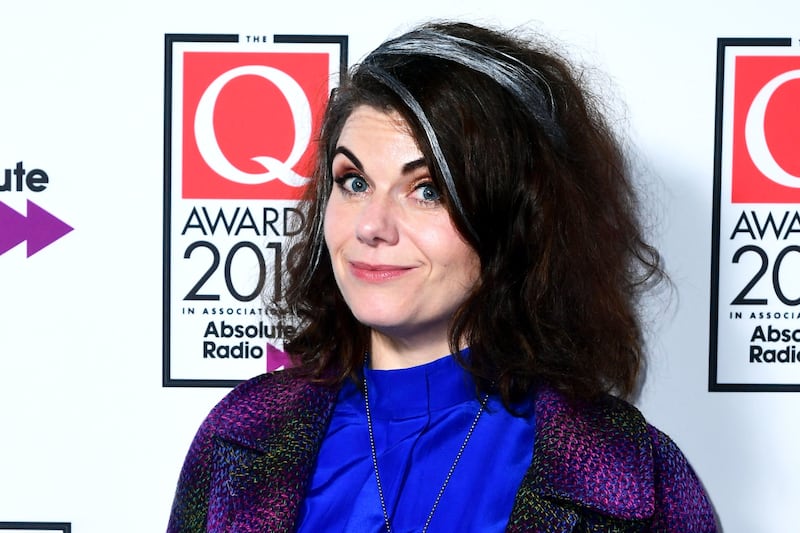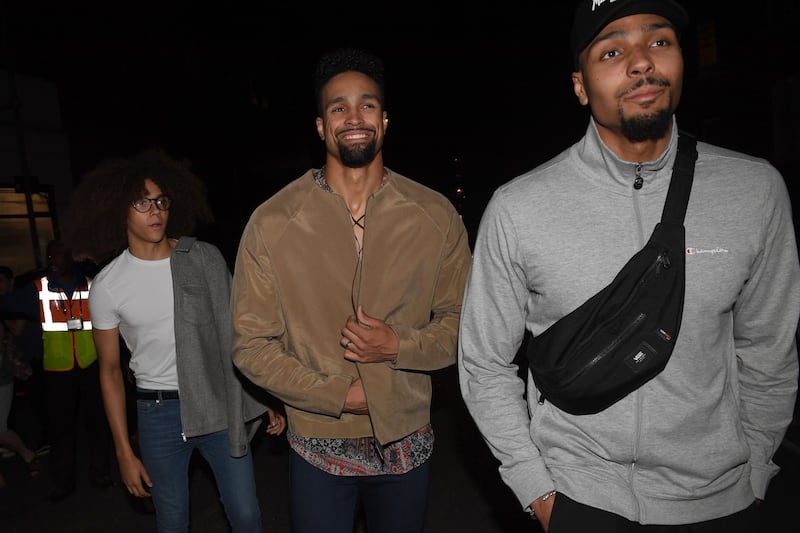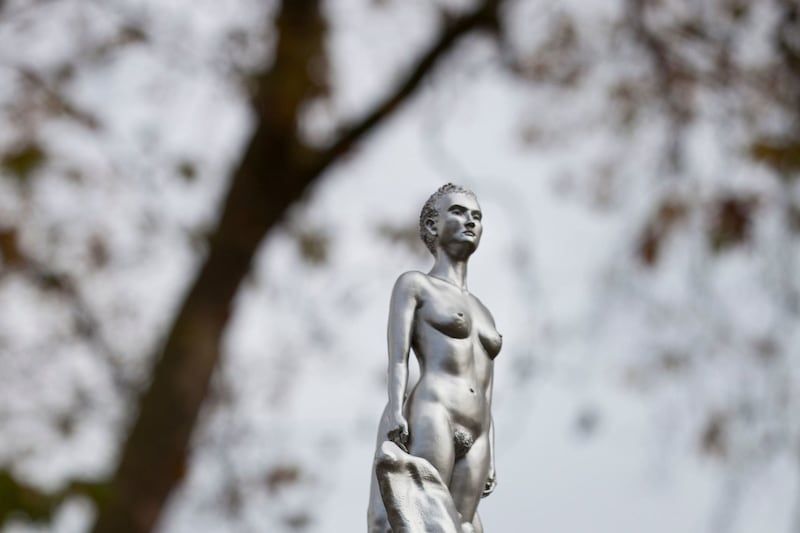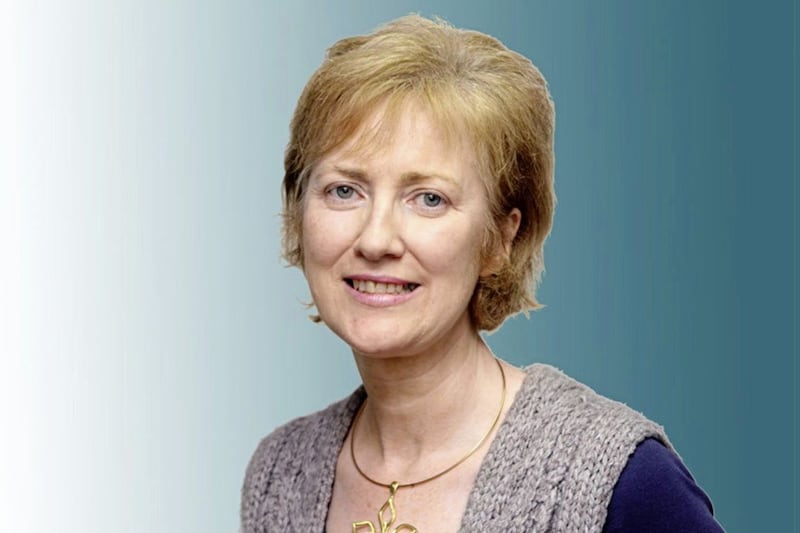“I MUST have something mis-wired in my brain,” says journalist and author Caitlin Moran, speaking on the phone from her home in London, “because I can talk about absolutely any aspect of my physical or emotional state, and just find it incredibly funny.”
It’s this humour and unflinching honesty that’s made Moran a a role model. Her 2011 best-selling book How To Be A Woman, a delightfully witty exposé on being young and female, earned her a place on millions of bookshelves and at the forefront of feminist thought.
She had literally written the book on womanhood, or so it seemed.
“How To Be A Woman was, from the vantage point of being 32, looking back over the years when you work out who you are,” she recalls. “By your early 30s, you think, ‘Well, I’ve done all the hard work, from now on it’ll be lunches with friends and wearing linen trousers’.”
Now 45 – with two teenage daughters, countless newspaper columns, and a 20-year-plus marriage – Moran, whose dad is Irish, is back for the sequel. A cross between memoir and self-help, More Than A Woman races through the good, bad and ugly of middle-age.
“We don’t sell the idea of being middle-aged to young women, and there’s such fear in young people about getting older,” she says. “I’m very purposefully trying to sell it, because, A – it’s brilliant and, B – the only other option is dying, which is palpably worse.”
She manages to harangue the rubbishness of daily life, while also celebrating every minute of it, proving that feminism – and most other things – can be fun and defiant at the same time. Middle-age is both “brilliant” and “a bag of balls”.
'My daughter wanted me to write about it'
Moran speaks as she writes – a mile a minute, with plenty of italics – and it’s easy to imagine she neither needs nor wants much editing. “I’m very first draft-y,” she says, “and I find it awkward talking to other writers because they seem to find writing quite agonising. I see it as a stand-up monologue – I very much imagine I’m talking to people.”
Some chapters pick up where How To Be A Woman left off, and Moran is as irked as ever at the linguistic limits on female genitalia. Men can choose from a vast buffet of phallic vocabulary, while women are left with a few squirm-inducing terms, most of which, she points out, aren’t even anatomically accurate.
Topics like sex, language and society are home turf for Moran, but this book breaks new ground with a powerful, heart-wrenching chapter on her daughter’s eating disorder, which balances tenderness with a determination not to pull a single punch.
“My daughter wanted me to write about it,” Moran says, “and I’m so proud of her. I wanted to describe all the things my husband and I did wrong – two incredibly loving, well-meaning people – because nobody talks about it. You can’t ‘parent’ someone who’s mentally ill, you have to become a health professional, and parents just aren’t given the advice.”
Family and friends feature heavily in Moran’s work but the apparent abandon with which she portrays them masks genuine concern for their privacy.
“There’s a little trick I do. I use a tiny sketch of something that happened, and then use that as a platform to discuss bigger issues. It gives the impression of full disclosure, but the amount I’ve written about my family’s lives is actually small.”
'No-one wants to read about their mum having sex with their dad'
Her daughters sign off relevant sections but do not read her books because, however tiny the sketch, “no-one wants to read about their mum having sex with their dad”.
At live events, there’s one question Moran constantly encounters: what about the men? Following a conversation with her brother, Moran took to Twitter, and asked the men of social media to tell her the downsides of being male. The result was a deluge ranging from mental health to assumed ‘stranger danger’, so she sat down and thought: yes, what about the men?
Her resulting thesis is simple: women have claimed traditional male characteristics (“wear trousers; go into space; be able to vote”) to overcome societal limitations, but men are still struggling to improve their lot by assimilating the best of femininity.
“Feminism is belief in equality,” says Moran, “so just as women can be freed of their presumptions, men can free themselves from theirs. That I must be buff and fit; that I can’t talk about my emotions; that mummies are loved more than daddies. I feel passionately that not only can I solve this problem, I can also double my audience.”
Despite charging merrily into most of today’s hot-button issues, it’s good, old-fashioned Botox that’s stirred up controversy.
“It’s been the most contentious so far,” Moran says. “There’s a middle-class thing that everything has to be natural – but if you’re into natural beauty, you tend to be naturally beautiful.”
Botox is common among celebrities, she says, but many keep it secret. “That leaves women feeling they have gnome DNA" – because such-and-such an actress "says all she’s using is a £5.99 face pack, and yet looks really beautiful.
“For me, the most feminist thing you can do is tell the truth about your life as a woman, so if people are scared of looking un-feminist because of Botox, that’s a little feminist knot we need to untie. I’m happy to be the first to stand up and say: ‘Yes, I’ve had it’. Let’s just be honest – life’s too short.”
Moran’s spent enough time on Twitter to know what can happen when celebs step out of line, and she’s no friend of ‘cancel culture’. She blames the medium as much as the message: “Only 14 per cent of the population is on Twitter, and it’s a place people go to argue. I feel sorry for feminists of both generations, who think you can sort things out on Twitter.”
Has she ever been Twitter mobbed? “Oh yes,” she says casually, “and the first couple of times, it feels like the end of your life. To be suddenly accused of being evil can make you incredibly paranoid and upset, but it also makes you go away and think. As with everything, you can walk around saying, ‘I smell’, or you can scrape the poo off and use it to grow flowers.”
'The world is f***** at the moment'
Moran does not shy away from the tough stuff, but she’d rather laugh than grumble, and both book and interview are suffused with optimism. “The world is f***** at the moment, but everything is cyclical, and after destruction comes construction. Young people have their heads screwed on, and there are heroes out there whose names we’ll know in five years time.”
She does not share the politics or gender politics of certain world leaders, but finds comfort in the big, broad view. “Whenever I have to cheer up my children, I tell them, ‘Girls, you’re going to live through an era where you see the headline, ‘Donald Trump is dead”.”
Having mastered middle-age, Moran knows life is more journey than destination, and More Than A Woman may end up the middle of a trilogy: “Hopefully I get a chance to check in again in another 10 years.”
:: More Than A Woman by Caitlin Moran is published by Ebury, priced £20. Available now.
